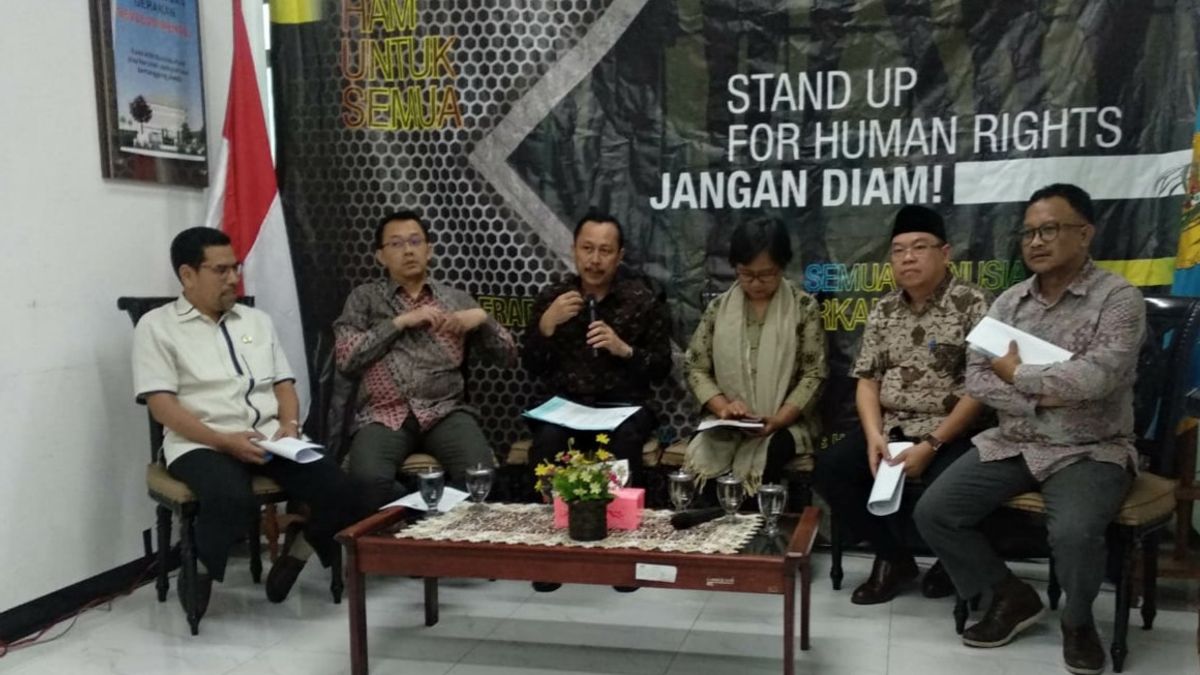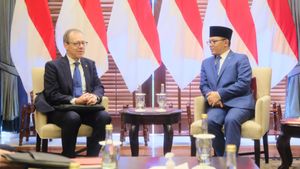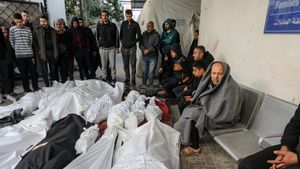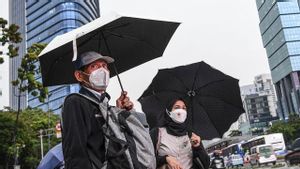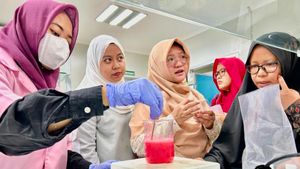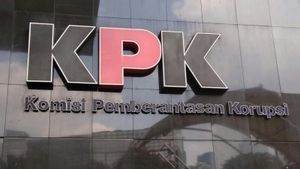JAKARTA - The National Human Rights Commission (Komnas HAM) said that upholding and investigating human rights cases is still a big task for President Joko Widodo's second government. Because, as long as the former governor of DKI Jakarta served as president and included the resolution of human rights cases in the government's work program formulated as Nawacita, there had not been any significant progress.
Komnas HAM noted, there are three important points that President Jokowi must resolve in the 2019-2024 period. The first is the matter of investigating serious human rights cases. The head of Komnas HAM, Ahmad Taufan Damanik, said that there were 11 files of cases of gross human rights violations that had been transferred from his party to the Attorney General.
The 11 cases whose files have been submitted are related to the events of 1965/1966, the mysterious shooting incident (Peter) 1982-1985, the enforced disappearance of activists in 1997-1998, the Trisakti incident, Semanggi I and II in 1998.
Not only that, there was also the Talangsari incident in 1989, the May 1998 riot, the Wasior Wamena incident 2000-2003, the murder of the shaman from 1998-1999, the Aceh Keupok guava incident, the Rumoh Geudong incident, other Sattis posts, and the KKA Simpang incident (Paper Kraft Aceh).
According to Ahmad, even though it has been delegated, there have been no concrete steps from the Attorney General to date to follow up to the stage of investigation and prosecution in accordance with Law Number 26 of 2000 concerning Human Rights Courts Article 21 jo Article 23.
"Whereas in the law it states that investigations are obliged to be completed within 90 days of being declared complete by the investigator. Unclear resolution of cases of gross human rights violations is a form of denial of justice," said Ahmad in a press conference at the Komnas HAM Office, Jalan Latuharhari, Central Jakarta, Thursday, November 28.
In addition to the issue of gross human rights violations, Ahmad also touched on the handling of conflicts over natural resources (SDA). He even said that the Jokowi administration, which likes to build infrastructure, often causes conflicts.

"In the last few years there have also been many complaints from the public regarding infrastructure development, which consists of toll road construction, revitalization of railways and railway stations, airport development, and reservoir construction," he said.
He also said that Jokowi's efforts to implement Agrarian Reform also often resulted in criminalizing residents who made efforts to obtain rights to their land around the forests and lands of indigenous peoples.
Other natural resource conflicts handled by Komnas HAM are land disputes between residents and the TNI / Polri, which usually involve official houses or land / land.
Ahmad said that his party was not just doing nothing after receiving public reports. Komnas HAM, said Ahmad, has even conducted mediation and provided recommendations in accordance with Law Number 39 Year 1999. "However, the level of compliance of the agencies receiving recommendations is still low," he said.
Finally, the rampant cases of intolerance and violations of the right to freedom of expression are homework for the Jokowi administration. Some cases, such as the Ahmadiyah attack in NTB and other incidents in Indonesia, have in fact failed to bring the main actors to justice.
Even if it ends in court, said Ahmad, the verdict given to the perpetrators is quite light compared to their actions.
Apart from that, recently acts of persecution by mass organizations have also been rampant. Persecution usually occurs because of different views and social media is a surefire way to gather mass persecution.
So that reflecting on their records, Komnas HAM assessed that Jokowi had to do a lot of work in this period with his staff.
"This needs to be done as a form of implementation of the mandate of the 1945 constitution in the framework of respecting, protecting and fulfilling human rights," concluded Ahmad.
The English, Chinese, Japanese, Arabic, and French versions are automatically generated by the AI. So there may still be inaccuracies in translating, please always see Indonesian as our main language. (system supported by DigitalSiber.id)
